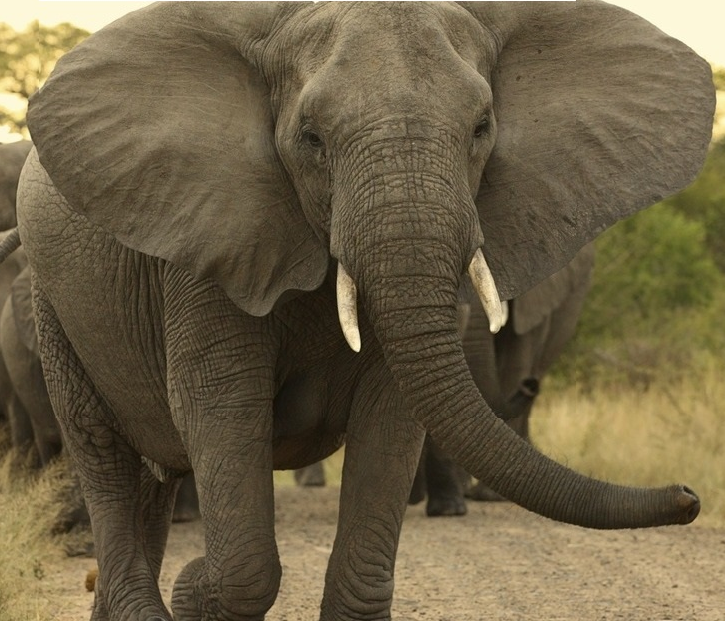You’ve heard that elephants never forget, but did you know they almost never get cancer, either?
It turns out that just 4.8 percent of known elephant deaths are related to cancer. For humans, cancer-related deaths are much more common — between 11 and 25 percent, scientists say.
The elephant’s low cancer rate is particularly interesting because, all things being equal, elephants should get more cancer than we do. Elephants have about 100 times as many cells as humans, and they have a lengthy life span, about 70 years. That gives a lot of cells a lot of opportunity to mutate and turn malignant.
Elephants have 38 additional modified copies (alleles) of a gene that encodes p53, a well-defined tumor suppressor, as compared to humans, who have only two. Further, elephants may have a more robust mechanism for killing damaged cells that are at risk for becoming cancerous. In isolated elephant cells, this activity is doubled compared to healthy human cells, and five times that of cells from patients with Li-Fraumeni Syndrome, who have only one working copy of p53 and more than a 90 percent lifetime cancer risk in children and adults. The results suggest extra p53 could explain elephants' enhanced resistance to cancer.
Elephants have long been considered a walking conundrum. Because they have 100 times as many cells as people, they should be 100 times more likely to have a cell slip into a cancerous state and trigger the disease over their long life span of 50 to 70 years. And yet it's believed that elephants get cancer less often, a theory confirmed in this study. Analysis of a large database of elephant deaths estimates a cancer mortality rate of less than 5 percent compared to 11 to 25 percent in people.
In search of an explanation, the scientists combed through the African elephant genome and found at least 40 copies of genes that code for p53, a protein well known for its cancer-inhibiting properties. DNA analysis provides clues as to why elephants have so many copies, a substantial increase over the two found in humans. The vast majority, 38 of them, are so-called retrogenes, modified duplicates that have been churned out over evolutionary time.
With respect to cancer, patients with inherited Li-Fraumeni Syndrome are nearly the opposite of elephants. They have just one active copy of p53 and more than a 90 percent lifetime risk for cancer. Less p53 decreases the DNA damage response in patients with Li-Fraumeni Syndrome, and Schiffman's team wondered if more p53 could protect against cancer in elephants by heightening the response to damage. To test this, the researchers did a side-by-side comparison with cells isolated from elephants (n=8), healthy humans (n=10), and from patients with Li-Fraumeni Syndrome (n=10). They found that elephant cells exposed to radiation self-destruct at twice the rate of healthy human cells and more than five times the rate of Li-Fraumeni cells (14.6%, 7.2%, and 2.7%, respectively). These findings support the idea that more p53 offers additional protection against cancer.
